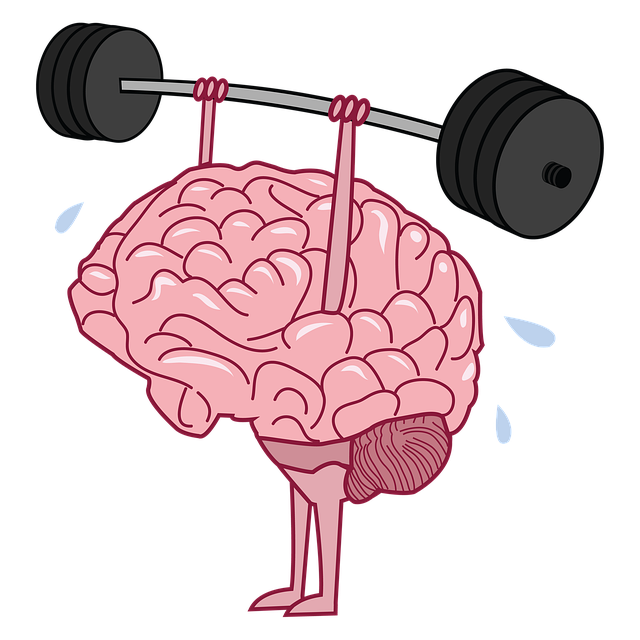In today's diverse society, cultural sensitivity in mental healthcare is crucial. When addressing issues like sexual addiction in Longmont, therapists must understand and respect patients' unique cultural backgrounds, incorporating traditional healing practices and community support systems to improve therapy engagement and recovery outcomes. Challenges arise from societal taboos surrounding sexual addiction, requiring therapists to navigate delicate conversations with empathy. Effective culturally competent care involves active listening, adapting therapeutic techniques, and using mental wellness journaling exercises combined with compassion cultivation practices. Longmont Sexual Addiction Therapy (LSAT) has proven highly effective across diverse populations, providing a safe space for open dialogue, structured programs, and holistic treatment that prevents comorbidities.
In today’s diverse society, cultural sensitivity in mental healthcare is paramount. Understanding cultural diversity is crucial for providing effective treatment, especially in areas like sexual addiction therapy. This article explores these nuances, focusing on Longmont Sexual Addiction Therapy and its impact on diverse populations. We delve into the challenges faced, offer strategies for culturally competent care, and highlight how such approaches can revolutionize support for all individuals seeking help.
- Understanding Cultural Diversity in Mental Healthcare
- Challenges of Cultural Sensitivity in Sexual Addiction Therapy
- Strategies for Providing Culturally Competent Care
- The Impact of Longmont Sexual Addiction Therapy on Diverse Populations
Understanding Cultural Diversity in Mental Healthcare

In today’s diverse society, cultural sensitivity in mental healthcare is paramount. Understanding and respecting the unique cultural backgrounds of patients, especially those seeking therapy for issues like sexual addiction in Longmont, is crucial. What works for one individual may not be effective or even culturally appropriate for another. For instance, a patient from a different ethnic or religious group might have specific beliefs and practices related to mental health and well-being that should be acknowledged and integrated into the therapeutic process. This involves learning about various cultural perspectives on mental illness, expression of emotions, and healing practices. By incorporating these insights, therapists can create a safe and supportive environment that fosters open communication and enhances the emotional healing processes.
Cultural diversity in mental healthcare is not just about sensitivity; it’s also about expanding therapeutic techniques to include evidence-based methods tailored for diverse populations. This might involve adapting strategies for depression prevention or confidence boosting to resonate with different cultural norms and values. For example, incorporating traditional healing practices or community support systems recognized within a patient’s culture can significantly improve their engagement in therapy and overall recovery outcomes.
Challenges of Cultural Sensitivity in Sexual Addiction Therapy

Cultural sensitivity is particularly challenging when addressing sexual addiction, a complex issue often compounded by societal and cultural taboos. In Longmont Sexual Addiction Therapy, therapists must navigate sensitive conversations while respecting diverse cultural beliefs and values. Every individual’s relationship with sexuality is shaped by their unique cultural background, which can significantly influence help-seeking behaviors and expectations of therapy. For instance, certain cultures may view sexual addiction as a moral failing or a personal weakness rather than a treatable condition.
Integrating crisis intervention guidance tailored to cultural contexts is essential in these situations. Mental health education programs design plays a pivotal role in equipping therapists with the knowledge to address cultural sensitivities effectively. By incorporating insights from diverse communities, practitioners can adapt their approaches to foster trust and engagement. Additionally, promoting self-care practices among therapists is crucial, as it enables them to provide guidance without compromising their own cultural boundaries or well-being.
Strategies for Providing Culturally Competent Care

Providing culturally competent care requires therapists to be aware of and respectful of their clients’ cultural backgrounds, beliefs, and values. This involves actively listening to patients and adapting therapeutic techniques accordingly. One effective strategy is to incorporate mental wellness journaling exercises that allow individuals to express their thoughts and emotions in a way that aligns with their cultural practices. Additionally, compassion cultivation practices can help therapists build stronger connections with clients by demonstrating empathy and understanding.
For instance, therapists practicing in Longmont Sexual Addiction Therapy might introduce mindfulness-based stress reduction methods tailored to the client’s culture. By combining traditional therapeutic approaches with these alternative practices, mental health professionals can offer more inclusive and effective care. This holistic approach not only respects cultural differences but also enhances the overall stress reduction and mental wellness journey for each individual.
The Impact of Longmont Sexual Addiction Therapy on Diverse Populations

The effectiveness of Longmont Sexual Addiction Therapy (LSAT) has been particularly evident in its impact on diverse populations struggling with sexual addiction. This therapeutic approach, tailored to meet the unique cultural and individual needs of each client, offers a safe space for open dialogue and honest exploration. By employing culturally sensitive communication strategies, LSAT facilitates a deeper understanding of the underlying causes of addictive behaviors, which are often deeply rooted in personal histories and societal influences.
One of the key strengths of LSAT lies in its ability to foster resilience building among participants. Through structured programs that combine individual counseling, group therapy, and education, clients develop coping mechanisms to manage triggers, enhance self-awareness, and improve decision-making skills. This holistic approach not only addresses the sexual addiction itself but also promotes overall well-being, including the prevention of depression, a common comorbidity often associated with such addictions.
Incorporating cultural sensitivity into mental healthcare, particularly in the realm of Longmont Sexual Addiction Therapy, is not just a best practice but an imperative. By understanding and addressing the unique challenges faced by diverse populations, therapists can provide more effective care. The strategies outlined in this article serve as a roadmap for navigating these complexities, ultimately fostering a more inclusive and impactful approach to sexual addiction therapy that resonates with patients from various cultural backgrounds.














